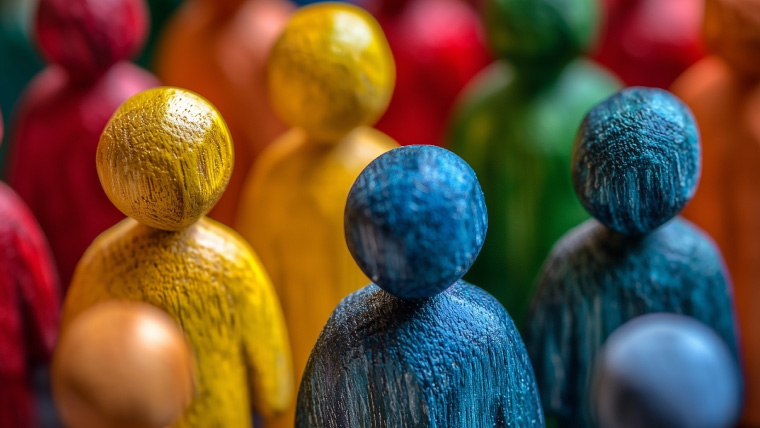You can teach technical skills, but you can’t give someone a heart.
It’s easy to say, “Hire for empathy,” but to do so quickly, and at scale is hard to execute. So, how can you teach empathy?
Professor Google defines empathy as the ability to understand and share the feelings of another. According to Grammarly, empathy is a term we use for the ability to understand other people’s feelings as if we were having them ourselves. How can you teach empathy in an established industry that focuses on risk and regulation?
Financial Services is now a commoditized industry, where margins are squeezed, and to compete on price is a race to the bottom. One way to compete is to differentiate with experience. Another is to embed into ecosystems through experience. What does experience have to do with empathy?
Everything!
How can you teach empathy with glaring profitability needs?
Showing empathy is not limited to front-liners, who directly interact with customers. Empathy starts within an organization and empowerment allows us to empathize with action outside of an organization.
When COVID-19 roared through East Asia, we spearheaded “Signature Actions.” The purpose of Signature Actions was not, “How do we make more money from our clients in need?” Instead, we asked, “How can we truly help those in need at a time like this?”
We quickly recognized customers had needs beyond the basics of how to bank during lockdown. Our journey began with understanding what colleagues and customers were going through from an emotional perspective.
Working parents were forced to wear triple hats as high performing employees, caretakers, and teachers.
Many others live on their own and were far away from family.
The elderly still have cash needs despite the fact that to step outside of the home can be a life or death decision.
Those who have the desire, means or supplies to help, are limited in sending aid to those who need it the most.
Next, we asked, “What will our customers face financially from the upcoming economic headwinds, and how do we help them prepare without inflicting unnecessary anxiety?”
The potential economic and employment implications of COVID-19 were predicted early on in the pandemic.
The 2020 goal is to stay alive, survive, but not necessarily to thrive. What happens after the pandemic subsides? What happens to small and mid-sized businesses? What’s the impact on the employees and families of these businesses? Multi-national organizations, governments, and other institutions will also face implications of their own. How might we help customers prepare financially?
I was asked, “How can I empathize?” Start with Maslow’s hierarchy of needs and apply this to your customers.
Often times companies anchor on and exceed on the first two levels: physiological and safety. Many financial institutions adjusted processes and policies to help customers bank remotely through digital channels. Digital adoption gave rise to the saying “Everyone is a millennial.”
The next level on Maslow’s hierarchy of needs is centered on relationships or a sense of connections. Financial advisors or relationship managers quickly reached out to clients to understand concerns and needs, to determine how we could help. For some, this led to restructuring debt.
A Signature Action need was to address the limitations of health and wellness during lockdown. How might we enable our loyal customers to maintain and enhance their health and wellness through digital means? How might we help our small and mid-size business clients continue to earn revenue and engage new or existing customers? This helped us review our existing and new global partnerships. We partnered with Switch & Co in many of the hardest hit countries, where we are a part of the community.
Next, attention to status and recognition is where many organizations drop off.
A Signature Action was to offer free, subsidized, or discounted remote educational resources for working parents.
Lastly, Maslow’s theory of self- actualization or creative activities in order to achieve one’s full potential is typically reserved for the top echelons of the customer base, if at all.
I heard of an elderly client in India, whose closest family member was a 24 hour flight away. When India locked down and blocked all domestic and International travel she had no way of going to the bank branch to obtain cash to get through the next several weeks in lockdown. Her son, not a client, contacted us and requested help. Self- actualization or creative ideas led us to create a process, whereby cash was delivered to the customer’s home, whilst ensuring safety for all parties involved. The display of empathy would not have occurred or been successful without empowerment.
Through our Signature Actions, we wanted to know how to engage our customers and recognize the importance of their loyalty through digital means by solving their new pain points. This led to higher engagement, loyalty, and acquisition. Most importantly, this led to doing what’s human, and what’s right — showing empathy.
How will you begin your journey on the road to empathy?
Millie Gillon is a native New Yorker and Singapore transplant who has a wealth of knowledge about innovation and strategy, and combines this with the use of data and design thinking to reshape the client experience.
Millie is currently the Global Head of Client Experience at Standard Chartered Bank. Prior to joining Standard Chartered, she led co-innovation for Citi and American Airlines at Mastercard. Millie has held senior product and innovation roles at Prudential Financial, JPMorgan Chase and American Express, where she concurrently earned her Master’s degree in Communications and Leadership Studies and her Six Sigma Black Belt.



